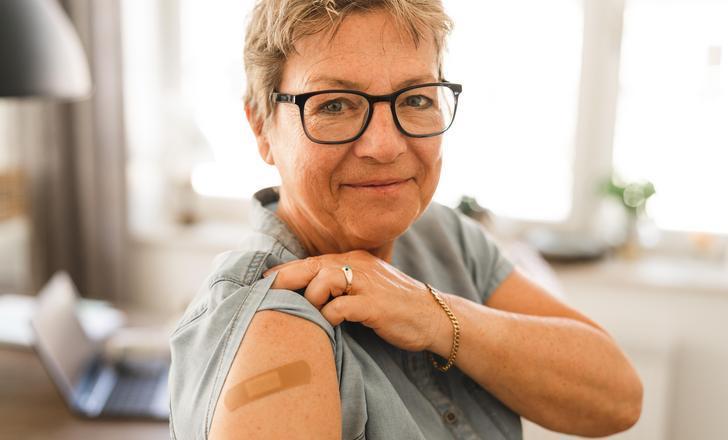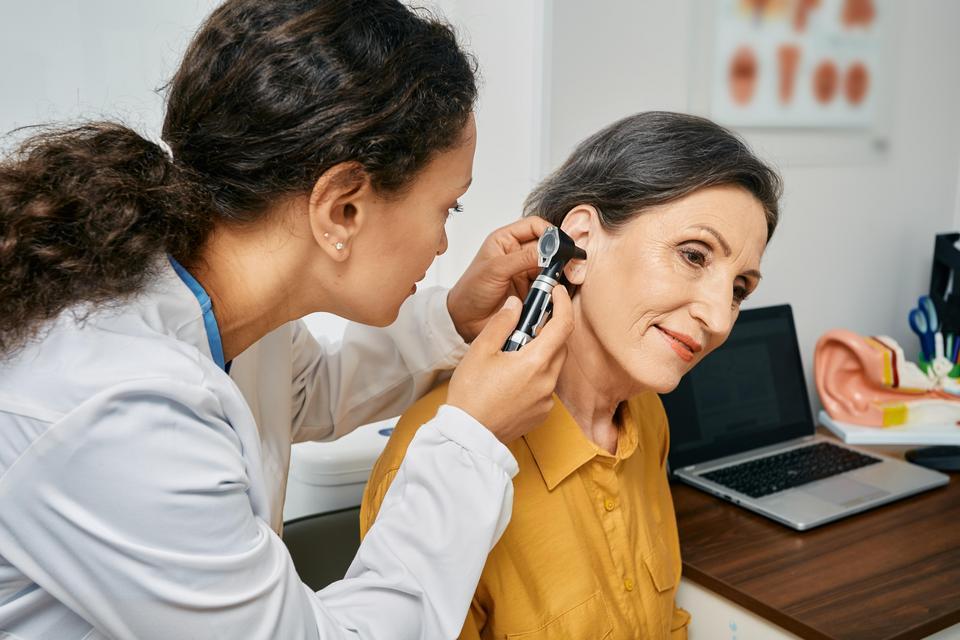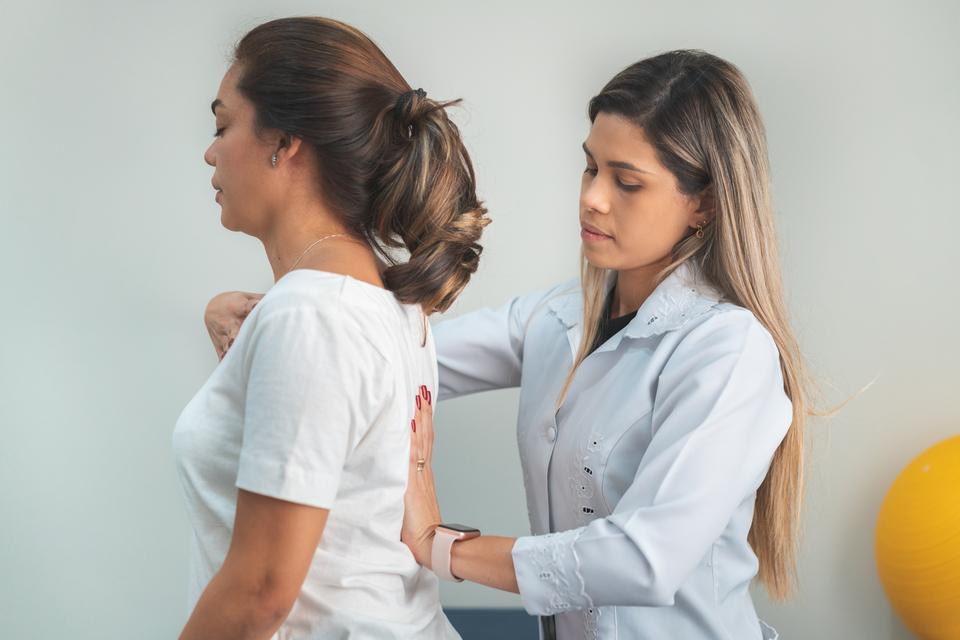The Infectious Disease Department (located in Altru Family Medicine Center) specializes in the prevention, control and research of infectious disease.
Common Conditions We Treat
- Skin and soft tissue infections
- Osteomyelitis
- Non-tuberculosis mycobacterium
- Tuberculosis
- Latent tuberculosis infection
- STDs
- Pre-exposure prophylaxis for the prevention of HIV infection in high-risk patients
- HIV/AIDs
Immunizations
Safe, effective vaccines that could reduce disease incidence, morbidity, mortality and health-care costs from these illnesses are available but are underutilized. All age groups of people need to be immunized against vaccine-preventable diseases, and certain groups of adults are at higher risk for vaccine-preventable illnesses. Nationally, only 65% of people aged 65 years and older receive annual flu shots--this number is even lower for the pneumococcal vaccine (referred to commonly as the "pneumonia shot") at only 45.5 percent. One study showed that workers who receive the influenza vaccine missed 43 percent fewer days of work during the flu season because of a respiratory ailment. Pneumococcal disease, which claims as many as 40,000 lives each year in the US, accounts for more deaths than any other preventable disease.
Immunization Recommendations
Vaccines are the best defense we have against infectious diseases. Prior to approval by the Food and Drug Administration (FDA), vaccines are extensively tested by scientists to ensure that they are effective and safe. Unfortunately, no vaccine is 100% safe or effective. Differences in the way individual immune systems react to a vaccine account for rare occasions when people are not protected following immunization or when they experience side effects.
All adults should be immunized for the following preventable diseases
- Tetanus, Diphtheria and Pertussis - (combined in one booster shot) every 10 years. Initial series is 3 shots, given to children as DPT.
- Measles, Mumps, Rubella - (combined in one MMR shot) A series of 2 shots are necessary if born after 1956. Initial series given to children at ages 15 months and 5 years.
- Influenza - 1 shot yearly prior to flu season for adults over age 50 and chronically ill or if traveling; may be given between usual flu seasons.
- Pneumococcal vaccine - Usually 1 shot after age 65 (before 65 if chronically ill--consult a physician).
- Chickenpox - (if given after age 13, series of 2 shots) if you have never had the disease. Also known as varicella.
Many adults have indications to receive these shots as well (ask your doctor if you should get them):
- Hepatitis B (series of 3 shots over 6 months)
- Hepatitis A (2 shots, 6 months apart)
- Meningococcal
Travelers may be exposed to diseases not common in our own country, such as yellow fever, malaria, diphtheria, Japanese encephalitis, typhoid or polio. These shots may require a number of weeks to be effective, so it is important to get them early (about 6 weeks before traveling abroad).
Other: Persons with potential exposure to rabies or anthrax (such as veterinarians) should be evaluated for these vaccines.
- Recommended Immunizations for Children from Birth through 6 Years Old
- Recommended Immunizations for Children from 7 through 18 Years Old
- Recommended Immunizations for Adults
Facts About Immunizations
Facts about Adult Immunizations
- Annually, 20,000 Americans die from influenza.
- Many adults become victims of vaccine-preventable diseases.
- Influenza, pneumococcal and hepatitis B infections account for the majority of adult vaccine-preventable disease and death.
- Influenza and pneumococcal infections may account for up to 60,000 deaths annually among adults.
- 200,000 to 300,000 cases of hepatitis B and 4,000 to 5,000 hepatitis B-related deaths occur annually.
- Persons 15 years and older accounted for 34 percent of reported cases of measles and 36 percent of reported cases of mumps in 1990.
- Approximately 11 million young women are unprotected against rubella.
- More than 90 percent of reported cases of tetanus and more than 60 percent of reported cases of diphtheria between 1985 and 1990 occurred in persons over 20 years of age, most of whom were inadequately immunized.
- Persons 15 years and older accounted for 34 percent of reported cases of measles and 36 percent of reported cases of mumps in 1990.
- Approximately 11 million young women are unprotected against rubella.
- More than 90 percent of reported cases of tetanus and more than 60 percent of reported cases of diphtheria between 1985 and 1990 occurred in persons over 20 years of age, most of whom were inadequately immunized.
- Persons 15 years and older accounted for 34 percent of reported cases of measles and 36 percent of reported cases of mumps in 1990.
- Approximately 11 million young women are unprotected against rubella.
- More than 90 percent of reported cases of tetanus and more than 60 percent of reported cases of diphtheria between 1985 and 1990 occurred in persons over 20 years of age, most of whom were inadequately immunized.
Where to Get Immunizations
Local health providers:
Altru Clinic - Main provides immunizations for most common diseases that have vaccines, including many travel vaccines. Call 780-6000 for information.
Local health departments:
The Grand Forks Health Department has regular Immunization Clinics scheduled. During the autumn months, influenza and pneumococcal vaccines are administered at immunization sites around the city and county. Call 787.8100 for more information.
Keeping Records
Although work has been done by state and local health departments to create computerized records for immunizations, it is very important to keep personal immunization records forever and in a safe place. Workplaces, universities and others routinely ask for immunization histories.
International Travel
The infectious disease section of Altru Health System provides the International Travel Clinic in hopes of making your trip safer and more enjoyable. Whether your travel is business-related or vacation you could be exposed to poor sanitation and infectious diseases not found in the United States. The travel clinic can provide you with all the information and immunizations needed to protect you during your travel to any country. Certain immunizations must be given more than one month before departure. Please try to make your appointment two to three months prior to trip departure.
Services provided by the International Travel Clinic
- Vaccinations
- Tetanus/Diphtheria
- Polio
- MMR (measles/mumps/rubella)
- Japanese Encephalitis
- Typhoid
- Meningococcal
- Rabies
- Influenza
- Varicella (chickenpox)
- Hepatitis A
- Hepatitis B
- Pneumovax
- Yellow Fever (Currently Unavailable due to National Shortages)
- PDD test (tuberculosis test)
- Prescription for pills for Malaria prevention and emergency treatment
- International Certificate of Vaccination (yellow card)
- Package of oral rehydration salts for travelers diarrhea
- Mini first-aid kit provided
- Consular information handout
- Patient education
- Proper hand hygiene for the traveler
- Malaria prevention
- Important insect precautions
- Personal medical data to carry with you
- First Aid Kit for travelers
- Safety tips
- Travelers diarrhea prevention and self-treatment
- Swimming safety
- Jet leg
- Motion sickness
- Altitude sickness
- Travel Clinic Book
- General Information
- Checklist for planning travel
- List of Passport Agencies
- Cruise ship travel
- Travel destinations
- Diseases/Illnesses
- Description
- Occurrence
- Risk for travelers
- Vaccines
- Symptoms
- Treatment
- Preventative measures
- Maps of areas affected
- Photos
- Snakes/Spiders/Insects etc
- Precautions
- First Aid
- Medical Emergencies
- Medical Insurance
- Travel Warnings and Consular Information
- Environmental Concerns
- Scuba diving
- High altitude
- Heat-related illness
- Motion sickness
- Population groups with health concerns
- Cardiovascular
- Elderly
- Diabetes
- Lung disease
- Pregnancy and breast-feeding
- Children and travel
- HIV-infected travelers
- Risks from Food and Drink
- Air Travel
- Jet Lag
- Medical conditions
- Traveling with pets
Additional Resources for Travelers
- North Dakota Department of Health
- Centers for Disease Control
To make an appointment, please call 701.780.6400.









